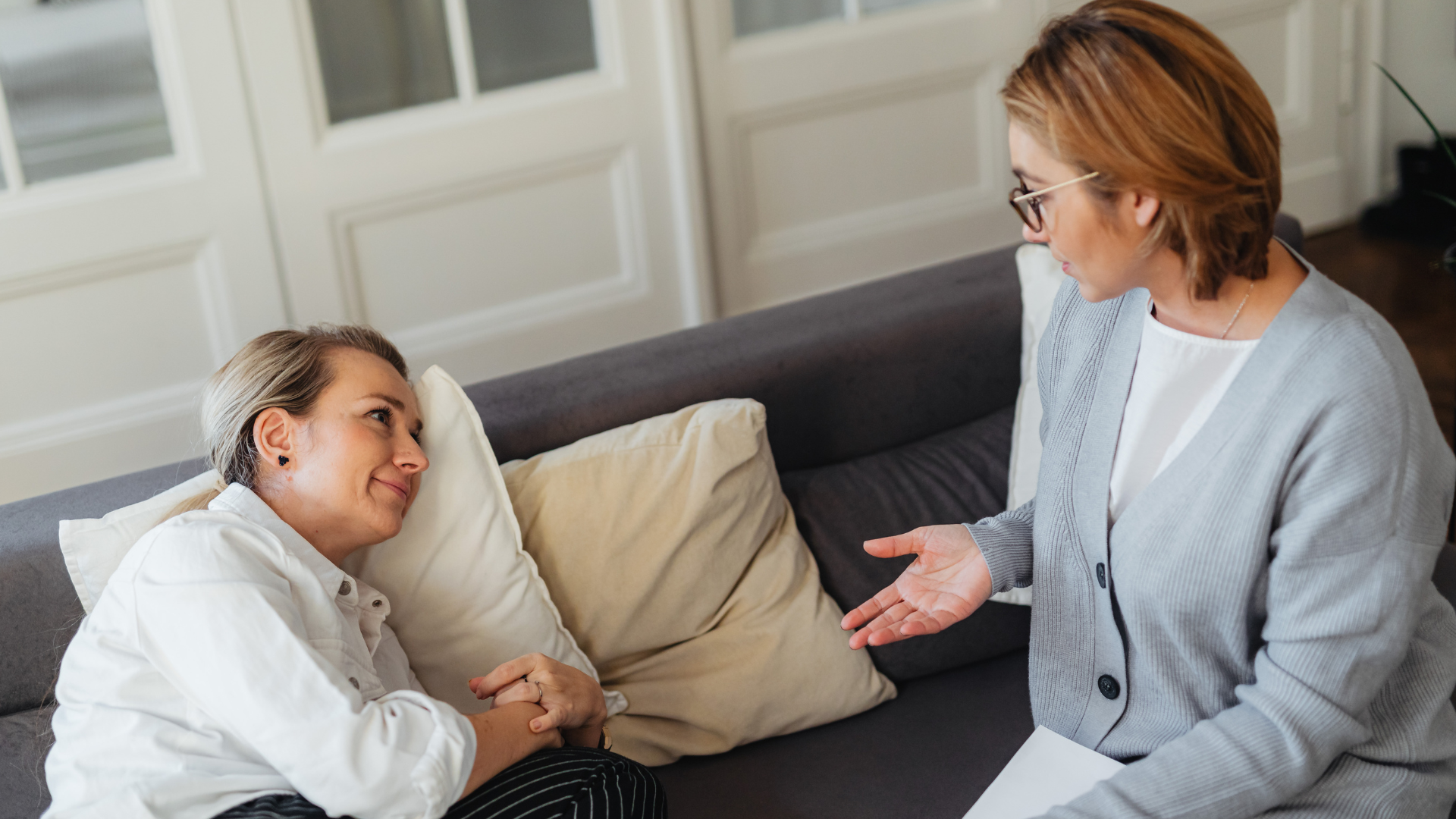Blog | 08/05/25
Behind the Scenes: Meet the Team Supporting Dementia Caregivers

Carallel takes a human-led, tech-enabled approach to support, guide and assist caregivers — and our Care Advocates are the humans behind that motto.
This blended approach works because a caregiver support solution cannot rely solely on technology, especially with nearly a quarter of adults 65+ not owning a smartphone. Isolation is also a significant concern, with 40% of dementia caregivers reporting loneliness and 20% facing depression. Caregiving is complex, and while personalized digital experiences can provide curated resources and tools, and help caregivers coordinate tasks with their Circle of Care and connect with community, caregivers also need expert guidance to navigate challenges and avoid dead ends. This requires a personal touch.
That’s where Carallel’s Care Advocates come in.
These credentialed experts, trained in fields like social work and end-of-life care, are all Certified Dementia Practitioners, making them well-equipped to power Carallel’s specialized dementia caregiver engagement program.
Perry Mimms, a former hospital discharge planner, has seen first-hand the challenges caregivers experience trying to keep their loved ones at home while managing an increasing number of tasks to do so.
Mimms is Carallel’s program manager of development and training and led the team that designed Carallel’s dementia caregiver program. Here, she shares details about how the program works.
Question: How do Carallel Care Advocates help dementia caregivers in particular?
Perry Mimms: Dementia is not a short journey; it is a long-term progressive disease, with exhausting and relentless changes that are particularly hard for people close to the care recipient.
Through the program, we evaluate the caregiver’s role and responsibilities, what the caregiving expectations are and, based on their loved one’s cognitive functioning, develop a very personalized plan. We help them come to terms with where they are right now and move forward.
Dementia can be emotionally devastating — you’re losing the person as you knew them while you’re caring for them. Published national estimates show spouses and partners act as caregivers for 25% of older adults with dementia – and Carallel data shows that number could be closer to 40% . You can imagine that they had a certain relationship and all of a sudden, their spouse may not know who they are. Watching someone decline like that can be isolating and lonely.
The program’s goal is to reduce caregiver burden and increase caregiver resilience. We focus on tips and tricks for navigation and getting some things off their plate. We help them access insurance and community benefits they are entitled to and coach on how to “share the care” with friends, family or neighbors. We work on building confidence, accessing self-care and scheduling breaks for themselves.
Q: What makes Carallel’s specialized dementia caregiver program stand out?
PM: It’s the magic combination of human connection, evidence-based support, and technology. For dementia, the experience of the caregiver is very different whether it’s a new diagnosis or it is progressing. We leverage specific strategies, content and information for the caregiver based on the stage they’re in and we meet them where they are.
This takes some behavioral science. Sometimes a caregiver is ready to talk something through and wants a robust plan. Sometimes they are only ready to tackle “one thing.” They may want to learn a little on their own. They can access Care Advocates for a personal connection, a Carallel support group to share with peers, or access resources on their own via the Companion app. We have to flex with that person and create a safe space for them to be.
We’re here for the long term. There isn’t a completion or graduation. We stick through it with the caregiver for as long as it takes. It’s the continued support; an open door.
Q: Why is it important for healthcare stakeholders to focus on dementia caregivers?
PM: The issues that make healthcare expensive are well understood particularly as we age and specifically when there is cognitive decline. People generally want to be at home where things are familiar and safe. They want the highest dignity of care. But, it’s hard to know what to do day to day.
The caregiver is right there. They see things moment-to-moment and are with the patient the majority of the time, especially as the disease progresses. They are the eyes and ears — they witness the changes, can be taught to look for red flags and when to notify the care team, and are the voice of the care recipient in many medical settings.
It’s about how we can work together to help them do all of that longer and more effectively.
Q: What is one tip or piece of advice you think dementia caregivers need to hear right now?
PM: Mostly that they’re not alone, and that it’s so important to have a place to engage with people who understand what they’re going through. It could be something like Carallel, or a memory café, or a faith-based group.
It’s also important to celebrate even the tiniest of wins. Caregivers don’t have to make gigantic changes to feel a benefit in their day-to-day lives. If they’re struggling with someone asking the same question over and over again, learning a strategy or two can make a difference. Repeating a question is usually a sign that something is important, so we encourage caregivers to redirect the conversation to that topic. Is it going to work every time? No, but even if it works occasionally, it’s so meaningful.
Contact us today to learn how to partner to improve caregiver and member/patient experience.
More on Dementia Caregiving
The ‘Invisible Second Patient’: Understanding the Role of Dementia Caregivers
How to Support Caregivers Through the 4 Stages of Dementia Caregiving
The latest from Carallel

Caregiver Journey Webinar
A Caregiver Conversation by Carallel: Talking With Your Loved One About Your Caregiving Role
In this conversation, we discuss the importance of talking about our caregiving role and offer tips for how to do it....

Caregiver Journey Webinar
A Caregiver Conversation by Carallel: The Ins and Outs of Legal Guardianship
In this conversation, we cover the basics of legal guardianship....
